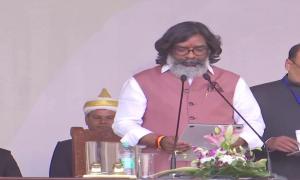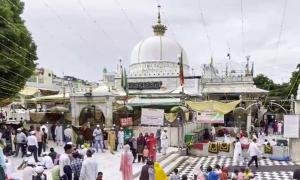Well, the question crops up because even as he has been silent on the multilateral trade regime and ways to refine and strengthen that system, the prime minister has been frequently talking about bilateral trade treaties on mutually preferential terms, comprehensive economic co-operation agreements, free trade area arrangements and the need for creating an Asian economic union.
At the recently concluded summit meeting of the South Asian Association for Regional Cooperation in Dhaka, Singh pushed hard the agenda for a free trade area treaty among the member countries, arguing that eventually, the arrangement should pave the way for a south Asian economic union.
And when trade ministers of the world are gathered at Hong Kong to hammer out an acceptable formula for implementing the Doha Development Round of the WTO talks, Singh is in Kuala Lumpur endorsing the need for greater trade with the ASEAN, through a comprehensive economic co-operation agreement with the member countries.
This is a clear shift from the manner in which the Prime Minister's Office looked at bilateral free trade area treaties. Even though in his first overseas visit as prime minister, Singh gave his clearance to the start of the free trade area treaty with Thailand, he was wary of such agreements and wanted proper studies and analyses to precede such arrangements.
It was obvious that the domestic industry had made a strong case for a review of FTAs that allowed duty-free imports of a large number of items from countries that enter into such agreements. Sri Lanka had already concluded an FTA with India by then. A treaty with Thailand was concluded, though with some reservations.
But a year later, the Manmohan Singh government appears to have shrugged off its reservations about FTAs. Talks with Singapore for a comprehensive economic co-operation agreement have been expedited. The South Asian Preferential Trade Agreement will start from January, which will pave the way for a free trade agreement among the SAARC member countries. India is now talking about a similar trade arrangement with the ASEAN countries. An FTA on services with the United States is also under discussion.
It doesn't seem to matter any more that the formation of regional trading blocs or bilateral free trade treaties are not entirely in sync with the spirit of a multilateral trading regime. Nor does the likely break down of the ongoing WTO talks over the Doha Round in Hong Kong seem to be a cause for major concern.
This is the sign of a government that is getting more assertive with every passing day. This is evident not just from its agenda on external trade, but also on domestic economic policies. The pussy-footing that one saw on divestment of government equity in public sector undertakings has now given way to a firm policy that the government will offload its stake in select non-Navaratna profit-making PSUs. The Left-induced uncertainty over the UPA government's plans on
PSU divestment is over.
Simultaneously, the labour ministry has decided to cut the interest rate payable on deposits in the Employees Provident Fund, by one percentage point to 8.5 per cent. The Fund continues to be in deficit even after the interest rate cut. But the deficit is now going to be smaller and, perhaps, more manageable. Appeals to the prime minister have yielded no sympathetic response so far. On the contrary, he has indicated that there is no going back on the interest rate cut.
And don't forget that twice in the past four weeks alone, Singh talked about the need for labour policy changes. At the India Economic Summit in November, he said labour laws in the country should be made more flexible. Elaborating the theme further, Singh told the Indian Labour Congress that it was time the labour laws were comprehensively reviewed as several of them had outlived their utility.
Labour law reforms may still take some more time. But the PM's message, coupled with his clear decision on trade, divestment and the EPF interest rates, augurs well for the UPA government's economy policy direction in the coming months.









More from rediff